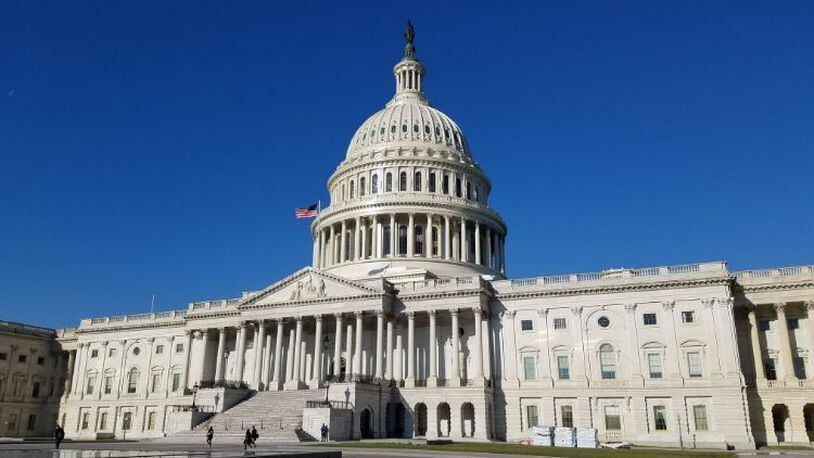This past week, Republicans repeatedly said the House might come back into session over the Easter break if a deal was reached on a GOP health care bill.
But the chances of striking a deal are much reduced when you are spread out around the country.
The House left town on Thursday for a 19 day break. They are back in session April 25.
The Senate left town Friday for a 17 day break. Senators return to session on April 24.
Having watched Congress up close since I was a Page in the House of Representatives in 1980, what has become painfully evident about the House and Senate, is that their usual work schedule isn't doing the trick.
As I reminded people with that old tweet, the last time lawmakers finished their budget work on time - by October 1 - was over 20 years ago, in 1996.
That might be an indication that something needs to change.
Certainly, lawmakers like to go home to take the pulse of the voters back home, and their schedules are aligned to take advantage of that each week.
The Senate typically has a first vote on Monday evening, and a final vote by Thursday afternoon; this past week was one of the rare weeks where roll call votes occurred in the Senate on both a Monday and a Friday.
The House usually works Monday-Thursday or Tuesday-Friday; here is their legislative schedule for the next six months, with the planned days in session in black:
Lawmakers bristle when reporters mention the recess, as some members make sure you know they aren't just playing golf and watching game shows while they are at home.
"Follow me someday, and I'll show you a 14, 16 hour day; it's not a recess," said Rep. Tim Murphy (R-PA) to reporters as the House got ready to leave on a 19 day Easter break.
Murphy is right - many lawmakers are doing a lot of events back home, and talking to their constituents.
But - when they aren't in Washington, the legislative business of the country pretty much goes on hold.
A prime example of that comes up later this month - when Congress returns the week of April 24, they will have just a few days to extend a stopgap budget, which runs out on April 28.
That full budget should have been approved by October 1 of 2016, as in last year - but because of the elections, lawmakers really didn't try to pass the dozen annual spending bills, and instead approved what is known as a "Continuing Resolution" to fund the government.
As for the 2018 budget, the Congress is already well behind schedule on that as week. Lawmakers are supposed to approve a spending blueprint known as the "budget resolution" by April 15 of each year.
But in 2017, that budget resolution has not even been formulated, let alone voted on, as the failure to meet that April 15 deadline has become commonplace, and entirely bipartisan.
Think of it this way - if your assignment at work from your boss was to get the budget done by October 1, you would probably screw around early in the year, but then you would stay at work as long as needed to get the budget done by October 1.
Or, there might be consequences.
If you had failed to get that budget done on time in 36 of the last 40 years - that doesn't sound like a plan that is producing results.
Again - I must emphasize - that record of budget failure is a bipartisan one. The Republicans are no better than the Democrats on the annual appropriations bills, just like the Democrats are no better than the Republicans.
And unless Congress decides to scrap its August recess and work a lot more hours on the floors of the House and Senate in May, June and July, 2017 will go down as yet another year that the budget work doesn't get done on time.
That might not sound important to many of you, but when that work doesn't get done, it also slows the other work of Congress - and this year, that could further bog down the legislative agenda of President Donald Trump, which is already moving slowly out of the gate.
My advice to members of Congress is simple - just the put the bills on the floor. Don't be afraid of tough votes. Work late on Tuesdays, Wednesdays and Thursdays. Have votes five days a week. Week after week after week.
And I'll be there to cover it.
About the Author
